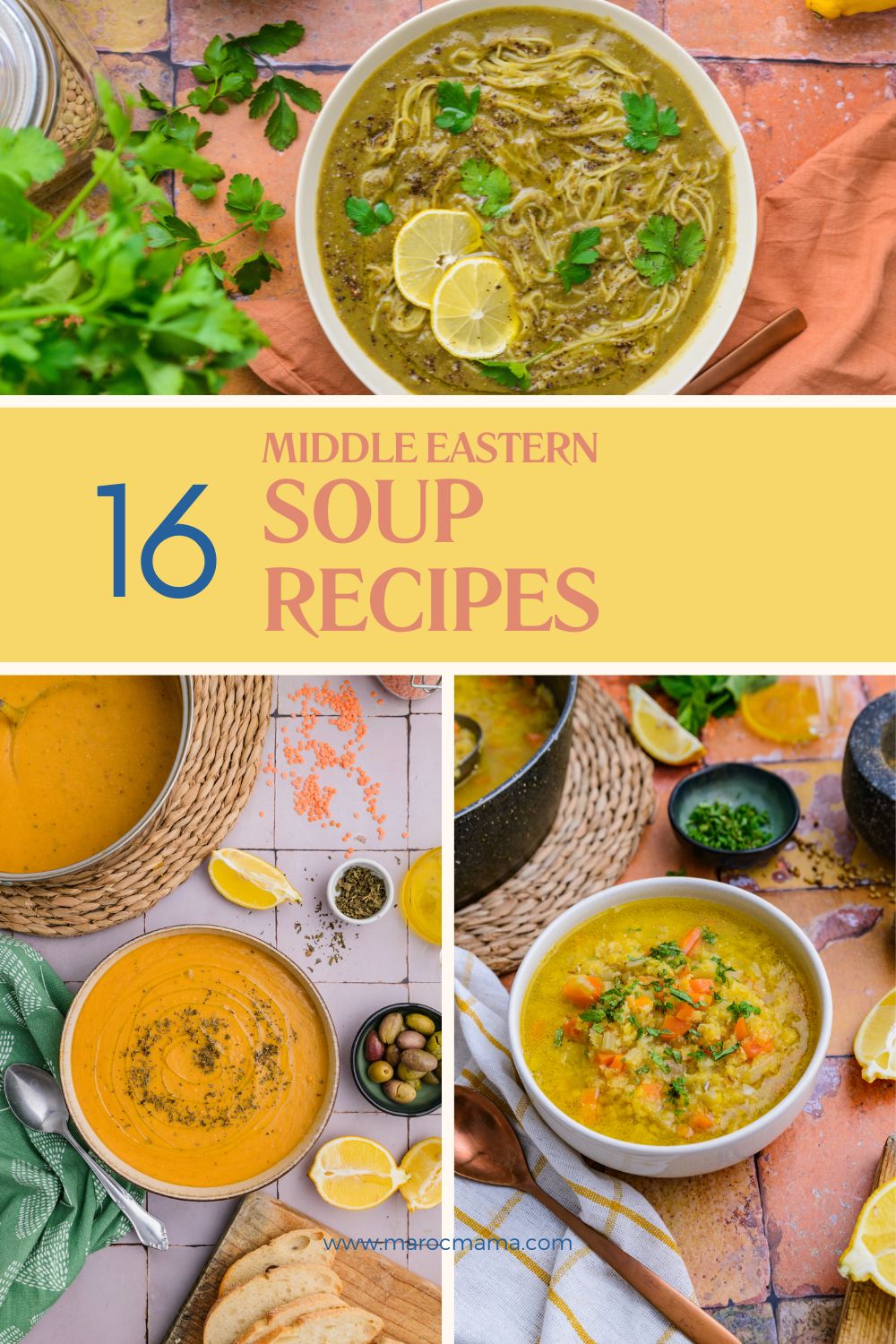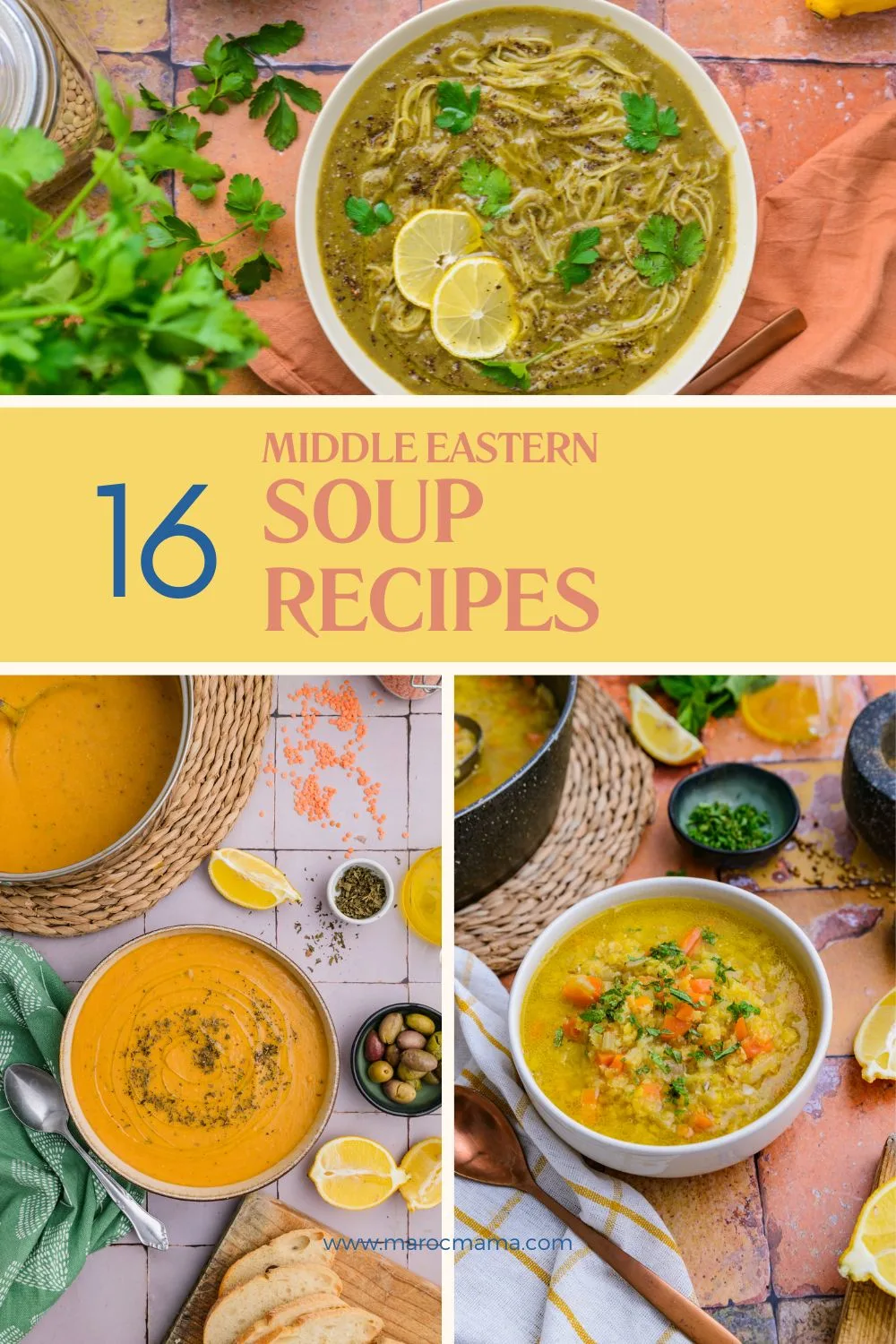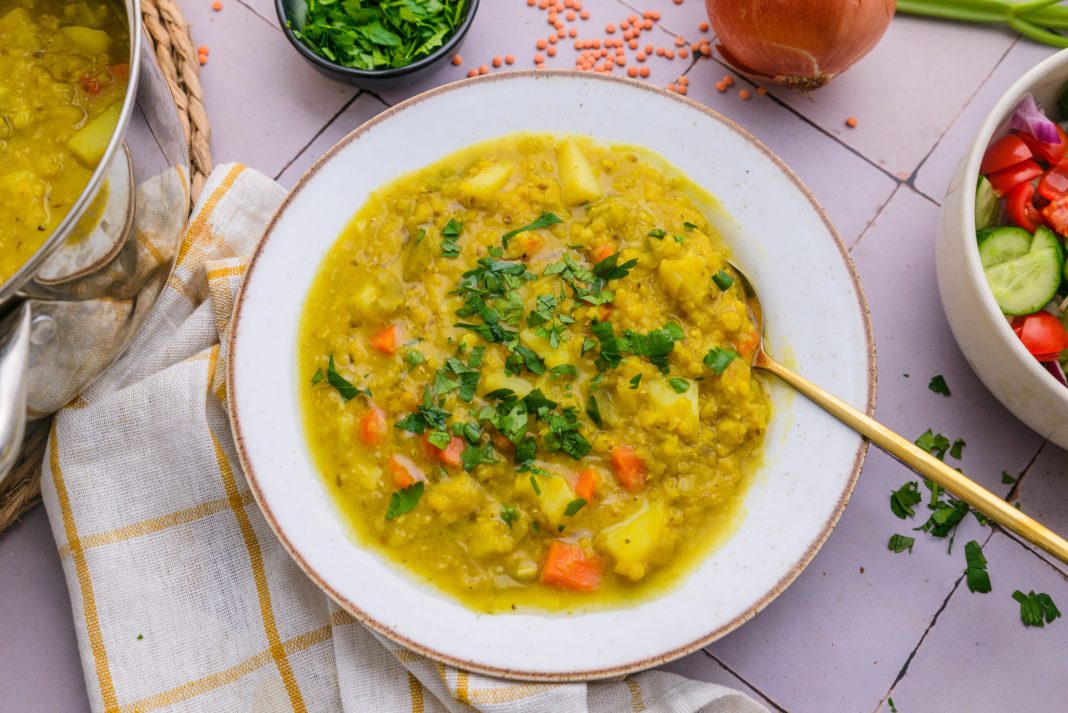Have you ever wondered what makes Middle Eastern soup recipes uniquely comforting and rich in flavors?
Middle Eastern cuisine boasts various soups, reflecting the region’s heritage and flavors. These soups are infused with aromatic spices such as cumin and coriander, offering delicious taste and health benefits.
Staples like lentils, chickpeas, and rice provide nourishment, while herbs like mint and parsley add freshness and are important in Middle Eastern soups. From Lebanon’s hearty lentil soups to Egypt’s tangy tomato-based Shorba, these soups hold significance in family gatherings and festive occasions and symbolize hospitality.
Discover a mouthwatering recipe round-up of some of the warm Middle Eastern soups you can create in your kitchen.


What are Middle Eastern Soup Recipes?
Middle Eastern soup, often referred to as “Shorba,” is a traditional dish that varies across the region’s diverse culinary landscape. Originating from centuries-old cooking traditions, these soups are known for their rich flavors and nutritional value. Influenced by Arabic, Persian, Turkish, and Mediterranean cuisines, Middle Eastern soups feature a harmonious blend of spices, vegetables, legumes, and sometimes meats or grains.
Common Variations of Middle Eastern Soup include:
- Spices: These soups are often seasoned with a blend of spices, such as cumin, coriander, turmeric, cinnamon, and paprika. These spices add depth and complexity to the soups’ flavor profiles.
- Fresh Herbs: Herbs like parsley, cilantro, mint, and dill frequently garnish. They contribute freshness and aroma to the soups.
- Vegetables: Middle Eastern soups use a variety of vegetables, including tomatoes, onions, carrots, potatoes, eggplants, and bell peppers. These vegetables provide texture, flavor, and nutritional value to the soups.
- Legumes: Lentils, chickpeas, and beans are commonly used in these soups, adding protein, fiber, and a hearty consistency to the dishes.
- Meat or Chicken: Some may include meat or chicken, such as lamb, beef, or chicken, cooked in flavorful broths or stews.
- Broths and Stocks: They are often prepared using homemade broths or stocks made from simmering bones, vegetables, and spices. These broths form the base of the soups and contribute to their rich flavor.
Bring the Taste of Middle Eastern Soup to Your Kitchen!
This Jordanian soup features red lentils and warm spices. It is ready in under an hour and packed with protein and fiber. It is perfect for holidays or light Ramadan fast-breaking dishes.
This Yemeni soup is a hearty dish made with brown lentils. It packs vibrant spices like cumin and turmeric and tomato puree. Enjoy it with crusty bread for a complete and delicious meal.
Also known as Shorbat Adas, this comforting and hearty dish is perfect for chilly days. This soup is flavorful and nutritious, made with lentils, onions, garlic, and a hint of lemon.
Indulge in the comforting flavors of Jute Mallow Soup, also known as Molokhia Soup! This hearty dish combines tender chicken or beef with nutritious jute mallow leaves in a flavorful broth. It’s a taste of Egyptian tradition that’s sure to warm your soul.
This creamy butternut squash soup is next-level cozy. Roasted squash gets blended with a touch of sweet pomegranate molasses for an amazing depth of flavor. Top it off with a crunchy dukkah sprinkle for a textural contrast that’s totally addictive. It’s like fall in a bowl!
This hearty bran çorbası is made from lamb stock, flavored with an array of spices, and made more filling with cooked lamb meat and rice. It is a comforting main meal on a cold winter’s day.
This soup is like the vegetarian cousin of the Greek moussaka. Instead of layers of meat and fancy sauce, it’s a hearty stew packed with tender eggplant, juicy tomatoes, and plump chickpeas all simmered in a light, flavorful sauce.
Light, nourishing, and oh-so-comforting! A vegetable filled version of the simple Lebanese vermicelli soup that will have you happily slurping. This comforting soup is a perfect balance of spices, vegetables, and delicate vermicelli noodles.
This vegan soup is all about earthy flavors and wholesome ingredients. It is a thick and comforting vegan freekeh soup without oil, made with hidden vegetables simmered in a spiced broth.
This spicy bean soup gets heat and smoky flavor from harissa. Packed with hearty beans and a kick of fiery harissa, this soup is a flavor explosion that’ll warm you up from the inside out.
Celebrate spring and Nowruz, the Persian new year, with this traditional Persian noodle, Ash Reshteh, a vegetarian soup with cheese and dried thyme. Perfect for cozy gatherings or simply soothing your soul on a chilly day.
Warm up with a creamy and flavorful soup! Roasted cauliflower is blended with spice for a satisfying and healthy meal. Perfect for a chilly day!
This soup is creamy, comforting, and totally plant-based, made with roasted carrots, non-dairy Veggemo, and yellow split peas. It’s perfect for cozying up and enjoying a delicious bowl of goodness.
A good lentil soup recipe is crucial during Ramadan. During the holy month, soup is one of the staple items at the iftar table. These soup recipes are easy to make and provide a great way to transition from fasting to eating.
Turkish Lentil Soup (Mercimek Çorbası) is a hearty, vegan soup with red lentils, spices, and a lemony kick. Packed with protein and fiber, it’s a delicious and budget-friendly meal for any occasion.
This Egyptian soup is packed with lentil protein. This soup is nourishing and filled with red lentils, carrots, and tomatoes. Simmered in a flavorful vegetable broth, it’s a perfect weeknight meal!
How Do I Reheat Middle Eastern Soup Recipes?
To preserve the flavors and textures of Middle Eastern soups when reheating, follow these tips:
- Stovetop Method: Place the soup in a saucepan over medium heat, stirring occasionally until heated.
- Microwave Method: Transfer the soup to a microwave-safe bowl, cover loosely, and heat in short intervals, stirring in between.
- Add Fresh Ingredients: Before serving, enhance the soup’s freshness by adding a sprinkle of chopped herbs, a drizzle of lemon juice, or a dollop of yogurt.
Health Benefits of Middle Eastern Soup Recipes:
Middle Eastern soups offer a range of health benefits, including:
- Nutrient-rich: Packed with vitamins, minerals, and antioxidants from fresh vegetables and herbs.
- Heart-Healthy: Many soups feature ingredients like olive oil, known for its heart-protective properties.
- Digestive Aid: Ingredients like lentils and chickpeas provide fiber that supports digestive health.
- Immune Boost: Spices like turmeric and garlic have immune-boosting properties that contribute to overall wellness.
What to serve With Middle Eastern Soups Recipe?
Gluten-free Pita Bread
Moroccan Mint Tea
Moroccan Carrot Salad















